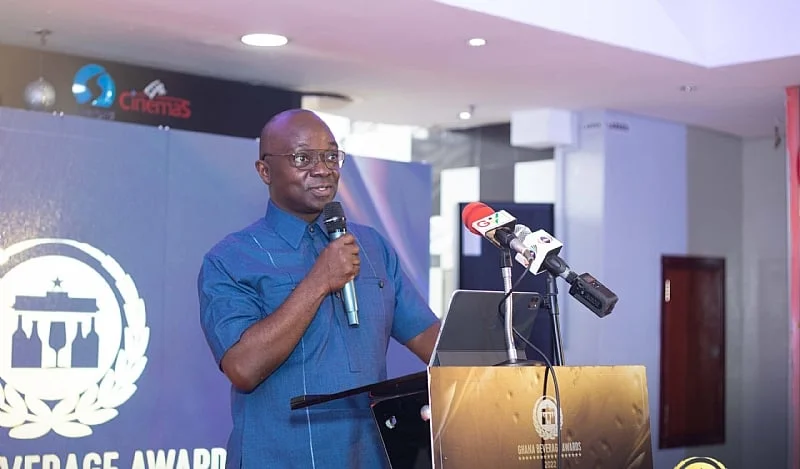The Food and Beverage Association of Ghana has renewed its call for the government to alleviate the heavy tax burden on the beverage industry, arguing that lower taxes would enhance export potential and boost economic development. In a January 2023 interview with the Ghana News Agency, General Secretary Samuel Aggrey highlighted how current taxation hinders competitive pricing, making local beverages less attractive compared to imported brands. This plea comes ahead of the 2022 Ghana Beverage Awards, emphasizing the need for policy reforms to support manufacturers and foster job creation.
High Taxes Stifling Pricing and Competitiveness
Aggrey pointed out that consumers frequently complain about the elevated prices of Ghanaian beverages, attributing this to the high taxes imposed on production. These levies create a pricing disadvantage, as foreign brands often benefit from lower costs in their home markets. “If we export more, it helps the government raise revenue to develop the country,” Aggrey stated, underscoring the potential economic benefits of a tax reduction. He argued that the current system militates against the pricing mechanism, preventing manufacturers from maximizing profits and reinvesting in expansion.
The association suggests benchmarking taxes against the employment opportunities provided by the industry, recognizing its role in job creation. With Ghana’s economy facing challenges like currency depreciation and inflation, easing taxes could stimulate production and increase foreign exchange earnings through exports.
Promoting Local Production and Agricultural Integration
Aggrey advocated for incentives to encourage beverage manufacturers to integrate more deeply with the agricultural sector. He noted seasonal wastage of fruits like pineapple and mango, which rot due to lack of processing capacity. “Very often we see them being rotten away when the season comes,” he said, proposing government policies to enable companies to produce concentrates for off-season use. This approach would reduce waste, support farmers, and ensure a steady supply of raw materials for beverages.
Such measures could transform the industry, shifting from 80% domestic consumption to 80% exports. Aggrey emphasized the need for improved infrastructure, including reliable electricity and water quality, to lower production costs and make Ghanaian products competitive internationally. “If we can do something, then we have to look at the taxes we are imposing,” he urged, calling for a balanced policy framework.
Environmental Concerns and Water Safety
The association also raised alarms about illegal mining activities, known as galamsey, which pollute water bodies and threaten beverage safety. Aggrey warned that continued degradation could force Ghana to import water or incur high treatment costs. “If not, very soon Ghana will have to import water or pay heavy price to treat water for production,” he stated, linking environmental protection to industry sustainability. This issue is critical for beverage production, which relies on clean water sources.
Broader Economic Implications
Aggrey’s appeal aligns with Ghana’s push for export-led growth amid economic pressures. By reducing taxes, the government could incentivize innovation and expansion in the beverage sector, creating more jobs and increasing revenue. The 2022 Ghana Beverage Awards provide a platform to showcase industry achievements and advocate for supportive policies.
As Ghana navigates its economic landscape, including efforts to stabilize the cedi and boost exports, the beverage association’s recommendations offer a pathway to sustainable development. Lower taxes could enable manufacturers to produce at competitive costs, export more, and contribute to national progress.






